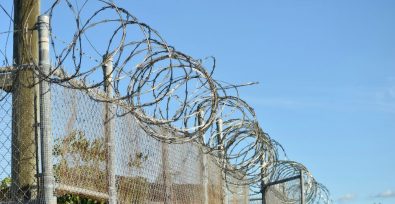Florida’s prison system, the third largest in the U.S., relies heavily on forced labor to keep its facilities running and support various government agencies. Approximately 80,000 incarcerated persons across 128 prisons, including 20 work camps, are compelled to perform a range of tasks without pay. These duties include cleaning toilets, preparing food, road construction, and hurricane preparation for county agencies. Incarcerated individuals are forced to work under threat of punishment, solitary confinement, and sometimes even physical abuse if they refuse.
Unbeatable profits
A glaring example is Aramark’s In2Work program, which uses incarcerated labor to make premium meals for other inmates, sold to their families and friends, without providing any compensation. Julius Smith, who entered the Florida prison system at 18, shared with The Guardian, “If we don’t do the work, then the prison does not operate.” This coerced labor is essential for the prison system’s daily operations which politicians and prison authorities across the country readily admit.
A 2022 ACLU report exposed the widespread use of forced labor in U.S. prisons, revealing that inmates produce $2 billion in goods and $9 billion in services annually, with negligible or no compensation. Seven states, including Florida, pay nothing for prison labor. If an incarcerated person refuses to work for free, they can be denied family calls and visits, put in solitary confinement, and refused parole.
Coercion to the extreme
The impact of forced labor on incarcerated individuals is profound and devastating. Smith describes the grueling nature of these jobs, from cleaning floors and scrubbing pots with harsh chemicals that damaged his hands to working long hours in food preparation. The lack of proper safety equipment often led to injuries and health issues. Smith recounts being punished for minor infractions and facing solitary confinement as a consequence of trying to avoid dangerous tasks.
The Guardian reports,
In 2019, Cheryl Weimar, while imprisoned in the work camp at Lowell correctional institution in Marion county, Florida, the largest women’s prison in the US, was beaten by correctional officers for refusing to work that day cleaning toilets.
Weimar had a very difficult life, from childhood to adulthood, according to her Tallahassee, Florida-based attorney Ryan Williams, from working as a prostitute as a child to struggling with homelessness and drug addictions.
The state of Florida settled a lawsuit filed by Weimar for $4.65m after the assault left her paralyzed from the neck down. No criminal charges were filed against the officers involved and no reforms were enacted in the wake of the incident.
Williams shared, “She had a whole litany of mental health problems, she had a major depressive disorder, and she just had a mental breakdown that day. She told the guards she couldn’t work, she declared a psychological emergency, and they got pissed. I saw the video, it was violent, it was bad.”
Weimar ultimately died from her injuries.
The 13th Amendment is a blight on America
How can forced unpaid labor be legal in a country that abolished slavery? The Constitution permits it. After the Civil War, the 13th Amendment allowed one exception to emancipation – persons convicted of crimes.
Together with partners, the Freedom United community is demanding all states and the federal government to explicitly outlaw slavery and involuntary servitude as punishment for a crime in the U.S. and state constitutions.
Despite our efforts, America’s reliance on forced prison labor persists, raising critical questions about justice, rehabilitation, and human rights. The continued exploitation of incarcerated individuals underscores the urgent need for comprehensive reform and the abolition of forced labor practices in the land of the free.
Help us make slavery a thing of the past. Join the movement today.







Freedom United is interested in hearing from our community and welcomes relevant, informed comments, advice, and insights that advance the conversation around our campaigns and advocacy. We value inclusivity and respect within our community. To be approved, your comments should be civil.